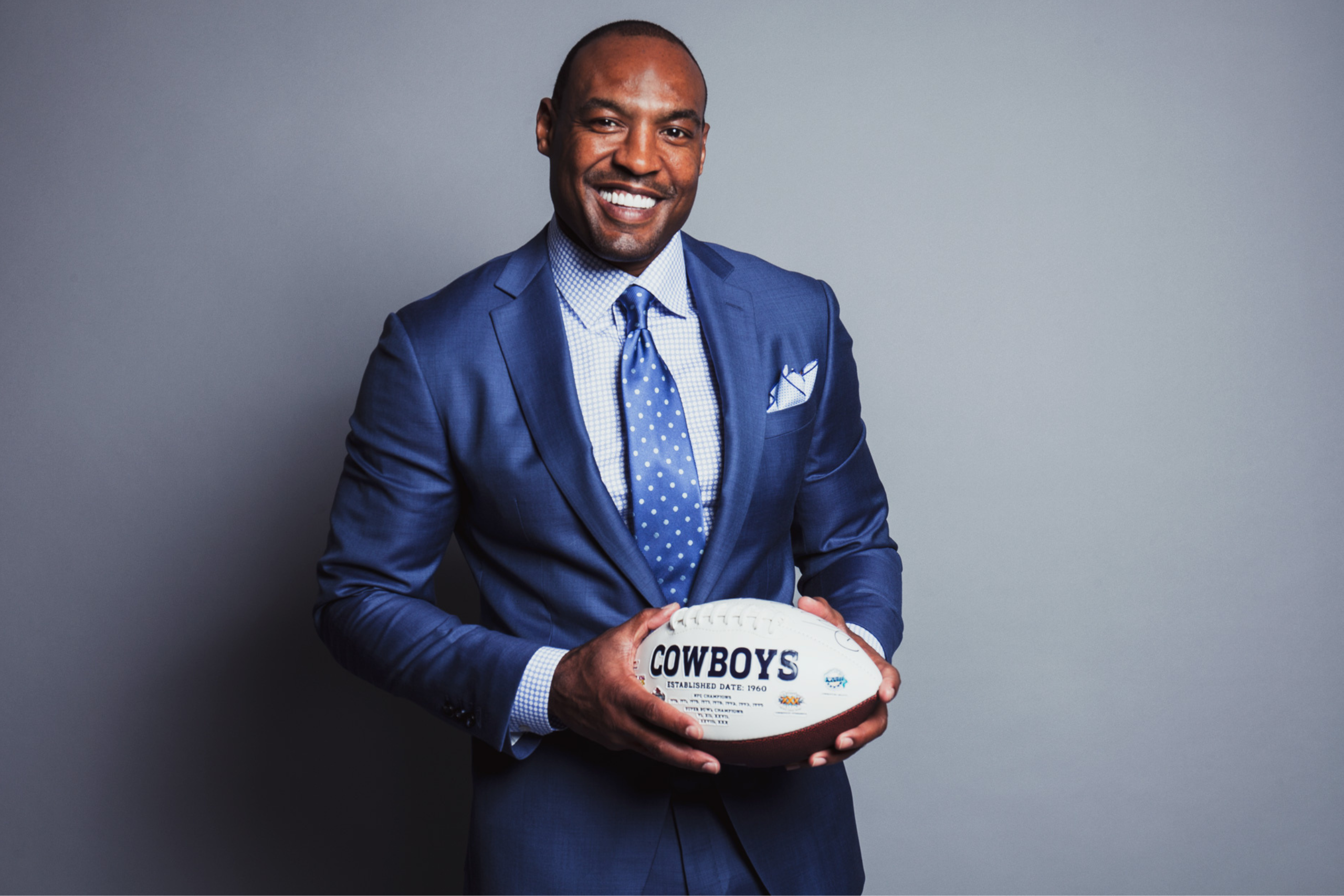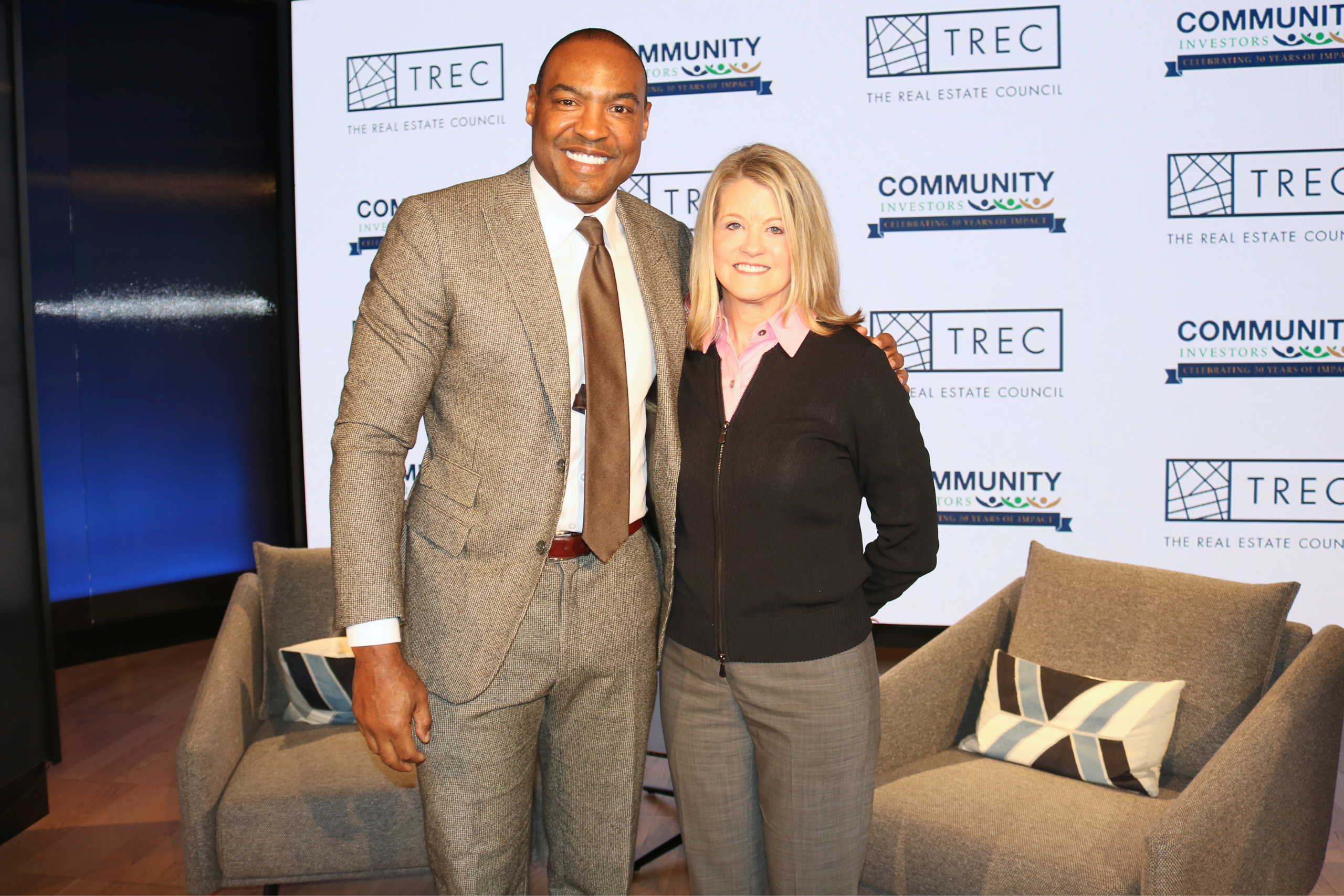Before he goes to sleep every night, Darren Woodson sets a pair of sneakers next to his bathroom sink.
It’s the first process that guides his day. When the three-time Super Bowl champion rises – at 5:27 a.m., to be exact – he washes his face and puts on his sneakers.
Once his sneakers are on, Woodson goes for a workout.
“It’s a battle every day because if I don’t put my shoes on, then the coward that I’m looking at in the mirror is not going to want to work out,” he said. “He’s going to want to get back in bed every single day.”
The youngest of four children, Woodson learned the importance of setting processes and delegating tasks from his mother, who he said woke up early every morning to get to her first of multiple jobs throughout the day. She enlisted Woodson’s siblings to ensure the kids got to school on time and stayed out of trouble.
“That was the one thing I learned from her early on and I’ve applied it in my life as well,” he said. “Everything I do is planned out a day or two days before.”
Earlier this year, Woodson spoke with TREC about the mentors, processes, and values that shaped his career as a Dallas Cowboys safety, ESPN broadcaster, and, presently, as a Managing Principal with Cresa Global, Inc.
You can watch or listen to the full conversation here. We have condensed the interview in this space to share some of Woodson’s best advice for becoming a better leader, both on the gridiron and in the boardroom.

On the Dallas Cowboys and Jimmy Johnson
Woodson entered the National Football League in 1992 as one of the final pieces of Head Coach Jimmy Johnson’s back-to-back Super Bowl run with the Cowboys, which had reached the postseason the previous season for the first time since 1985.
Johnson, who previously led successful college programs at Oklahoma State and the University of Miami (Fla.), built his Dallas teams with discipline, accountability, and intensely competitive practices.
“The mentality and culture was [to] do your job,” Woodson said. “Jimmy was a big believer in tak[ing] care of yourself so you can take care of other people. But if you don’t show up on time, if you’re not disciplined, if you’re not doing the right thing, then you can’t add to what we’re trying to build over here.”
Woodson played all 12 seasons of his career with the Cowboys, earning three First Team All-Pro honors and making five Pro Bowls. He was the 2002 recipient of the league’s Bart Starr Award, which is given annually to the player who “best exemplifies outstanding character and leadership in the home, on the field, and in the community,” and was inducted into Dallas’ Ring of Honor in 2015.
Woodson praised the veteran trio of quarterback Troy Aikman, running back Emmitt Smith, and wide receiver Michael Irvin as vital to both the team’s rise and his career development.
“They worked harder than anyone and I saw that early on. It set the tone,” he said. “They did all the little things not just on the field but off the field that really showcased who they were, and I always wanted to follow their lead and that’s why my career blossomed in the end.”
On Self-Reliance and Resilience
Another lesson Woodson learned from his mother: self-reliance. “My mom always used to say it this way: ‘Ain’t nobody gonna love you but you,’” he said. “That has stuck with me because in the end, we can all be friends and you can love me but it’s up to me to do what I need to get done. If I want something to get done, it starts with me.”
Woodson also credited childhood hero Muhammad Ali for helping instill in him the confidence and, at times, brashness required to accomplish his goals.
“He grew up in an era [before] civil rights and came up when Black men weren’t supposed to be openly talking like he was, but he could care less,” Woodson said of Ali. “He just did what he did and the darts came back his way and he just dealt with them.
“It was pure mental toughness. I’m not saying you have to be that way, but in your mind there has to be a bit of that Muhammad Ali in you saying, ‘I can accomplish this, I can get this done.’”

On Approaching Career Transitions with Humility
Each career transition Woodson has made required some level of training and overcoming adversity before triumph.
Even real estate.
“It was the willingness to start all over again at the bottom and not knowing what was going on in the meeting, sitting there, taking notes,” he said. “That was part of the humility I had to go through.”
But understanding and accepting adversity as part of the process for improvement, Woodson said, is half the battle.
“I’ve lost more games in my lifetime than I can think of and that’s what really built the man I am today,” he said. “I’ve been used to losing and then being resilient enough to get back up the next day. That’s part of it.”
On Diversifying the Commercial Real Estate Industry
Woodson noted that when he first entered the commercial real estate industry, “I didn’t see a lot of people that looked like me, and it was, ‘OK, let’s make people aware of the opportunity because there is a way for people of a different color to flourish.”
He said he and the leadership team at Cresa are striving to “be more intentional” about their diversity efforts.
“It’s easy to sit in your office every day and do transactions. It’s not easy when you have to go out to an [historically Black college or university] or a job fair and work with a foundation that’s mostly Hispanic and Black and talk to kids about the future and how it looks in the commercial real estate world,” he said.
In addition to his work with Cresa, Woodson is the spokesman for C5 Youth Foundation of Texas, which offers educational programs and leadership training to high-potential youth in under-resourced neighborhoods.
“We have to light that fire, and it starts with leadership,” he said.
Connect With Us: Upcoming Events | Get Our Newsletter | Subscribe to TRECcast
